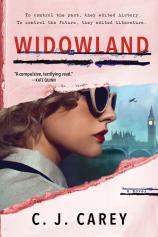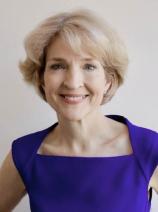Reading Group Guide
Discussion Questions
Widowland

1. Early on in the story, it’s stated that the Leader once said, “Women are the most important citizens in this land.” Discuss the irony of this statement that becomes evident as the story unfolds.
2. Rose’s job was to “correct” literature that was degenerate, subversive, or didn’t align with the Protectorate’s values and teachings. What purpose did this serve for the Protectorate, and what does this say about the power of books and story?
3. What regulations imposed upon women --- particularly in the lower castes --- by the regime did you find most egregious? Now think about your current situation: What regulations would you be at risk of breaking in such a society?
4. Why do you think there was such a monumental celebration for the coronation of Edward VIII and Queen Wallis when it was largely ceremonial and they had no legitimate power over the UK?
5. Rose’s six-year-old niece is part of a generation with no prior knowledge of life before the Alliance, while Rose’s father remembers it clearly. Discuss the generational impact of important historical events and how our perceptions of history change over time, depending on whether we lived through an event or merely read about it in history books.
6. Rose appears to have conflicting feelings about Martin Kreuz. She is attracted to him “despite herself.” Why do you think this is? Do you think she had genuine feelings for him? Or did she enter a relationship with him out of obligation because of his position and influence?
7. Citizens of the Alliance were encouraged not to think sentimentally about the past, and any suggestion that the past was better than the future was strictly outlawed as a “nostalgia crime.” The idea that a government could control people’s thoughts seems outlandish, but imagine a world where that could happen. Under these laws, would you ever be guilty of a nostalgia crime?
8. Oliver tells Rose, “No good society can exist without mutual trust.” Do you agree with this statement? Discuss the ways in which the theme of trust plays out in the book.
9. Why do you think Helena agrees to give up her baby, that that’s the only choice she has?
10. Rose mostly seems to fall in line and play by the rules and regulations set forth by the regime. But her beliefs are quickly challenged upon meeting with the Friedas in WIDOWLAND. Why do you think they had such an influence on her? In what ways did they instill courage in her to take a stance?
11. When do you think is the moment Rose turned into a resistor? When she neglected to turn over her report on the Friedas to the minister? When she agreed to help Oliver break into Martin’s office to procure the agenda for the convention? When she gave the vial to one of the Friedas? Or had she always been one?
12. With travel to the mainland banned, international news censored, and most foreign mail forbidden, citizens of the UK were effectively shut off from the rest of the world. Imagine you lived in this kind of society. How do you think you would fare (or not)?
13. Throughout the story, it was evident that not everyone supported the Alliance and the regime’s governing style. This is also true in our modern world. Why do you think some people become resistors, who speak up and take action in the face of oppression, while others follow along blindly?
14. While this version of history did not come to fruition, women and people of other marginalized groups are still sometimes reduced down to their reproductive status, heritage or racial characteristics. Why do you think this happens, and what are the repercussions for our modern-day society?
15. The idea of a government or a country attempting to erase or rewrite certain parts of history is not unheard of. In what ways has this happened in real life?
Widowland
- Publication Date: August 9, 2022
- Genres: Dystopian, Fiction, Historical Fiction, Historical Thriller, Suspense, Thriller
- Paperback: 432 pages
- Publisher: Sourcebooks Landmark
- ISBN-10: 1728248442
- ISBN-13: 9781728248448







